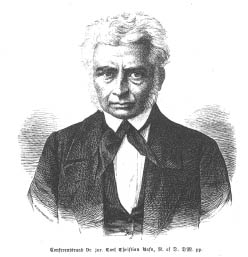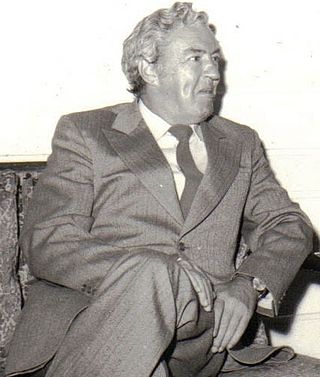
Knud Johan Victor Rasmussen was a Greenlandic–Danish polar explorer and anthropologist. He has been called the "father of Eskimology" and was the first European to cross the Northwest Passage via dog sled. He remains well known in Greenland, Denmark and among Canadian Inuit.

Jens Otto Harry Jespersen was a Danish linguist who specialized in the grammar of the English language. Steven Mithen described him as "one of the greatest language scholars of the nineteenth and twentieth centuries."

Christian V was king of Denmark and Norway from 1670 until his death in 1699.

The University of Copenhagen is a prestigious public research university in Copenhagen, Denmark. Founded in 1479, the University of Copenhagen is the second-oldest university in Scandinavia after Uppsala University.

Canute IV, later known as Canute the Holy or Saint Canute, was King of Denmark from 1080 until 1086. Canute was an ambitious king who sought to strengthen the Danish monarchy, devotedly supported the Roman Catholic Church, and had designs on the English throne. Slain by rebels in 1086, he was the first Danish king to be canonized. He was recognized by the Roman Catholic Church as patron saint of Denmark in 1101.

Carl Christian Rafn was a Danish historian, translator and antiquarian. His scholarship to a large extent focused on translation of Old Norse literature and related Northern European ancient history. He was also noted for his early advocacy of the recognition of Norse colonization of North America.

The Danish resistance movements were an underground insurgency to resist the German occupation of Denmark during World War II. Due to the initially lenient arrangements, in which the Nazi occupation authority allowed the democratic government to stay in power, the resistance movement was slower to develop effective tactics on a wide scale than in some other countries.
Stephan Hansen Stephanius was a Danish historian and philologist. His name is sometimes fully Latinized as "Stephanus Johannis Stephanius"
Vibeke Kruse was the official mistress of King Christian IV of Denmark between 1629 and 1648 and the mother of one of his three acknowledged, illegitimate sons, Ulrik Christian Gyldenløve. She was described as influential.
John Duncan Mackie CBE MC (1887–1978) was a distinguished Scottish historian who wrote a one-volume history of Scotland and several works on early modern Scotland.

The Chair of Scottish History and Literature at the University of Glasgow was founded in 1913, endowed by a grant from the receipts of the 1911 Scottish Exhibition held in Glasgow's Kelvingrove Park, as well as donations from the Merchants House of Glasgow and other donors. The chair has been held by a number of prominent historians of Scotland, including two Historiographers Royal. Although the chair is now based within the Department of History, it retains its original title.

Princess Thyra of Denmark was a member of the Danish royal family. She was the sixth child and third daughter of King Frederick VIII and Queen Louise of Denmark, and was also the younger sister of King Christian X of Denmark and King Haakon VII of Norway. Princess Thyra remained unmarried and had no children.
Karen Moustgaard Jespersen is a Danish journalist and former politician representing the party Venstre.

The Danish Census Book or the Danish book of land taxation dates from the 13th century and consists of a number of separate manuscripts. The original manuscripts are now housed in the Danish National Archives (Rigsarkivet) in Copenhagen.
Walter Lowrie was a Kierkegaardian theologian and translator.

Knud Jespersen was a Danish politician. Jespersen served as chairman of the Communist Party of Denmark between 1958 and 1977 and was a member of parliament between 1973 and 1977.

Holger Gilbert-Jespersen was a Danish flutist, orchestral musician and academic flute teacher. In 1926, Carl Nielsen's Flute Concerto was written for, dedicated to, and first performed by Gilbert-Jespersen in Paris. He was a member of the Royal Danish Orchestra from 1927 to 1956 as well as a professor at the Royal Danish Academy of Music from 1927 to 1962, where he trained generations of flutists.
Kongelig historiograf was a position in the kingdom of Denmark-Norway between 1594 and 1883. The office was originally created with the aim of producing a national history of Denmark from the 13th century, a "continuation of Saxo", improving upon the first such work, published in the vernacular in 1600 by Arild Huitfeldt.

Vitus Pedersen Bering was a Danish poet and historian. He served as Danish Historiographer Royal and was the great uncle of the explorer Vitus Bering (1681–1741).

The Danish Constituent Assembly is the name given to the 1848 Constitutional assembly at Christiansborg Palace in Copenhagen that approved the Danish Constitution and formalized the transition from absolute monarchy to constitutional democracy. It consisted of members of which 114 were elected by the people, 38 were appointed by the king and the rest were government ministers.













